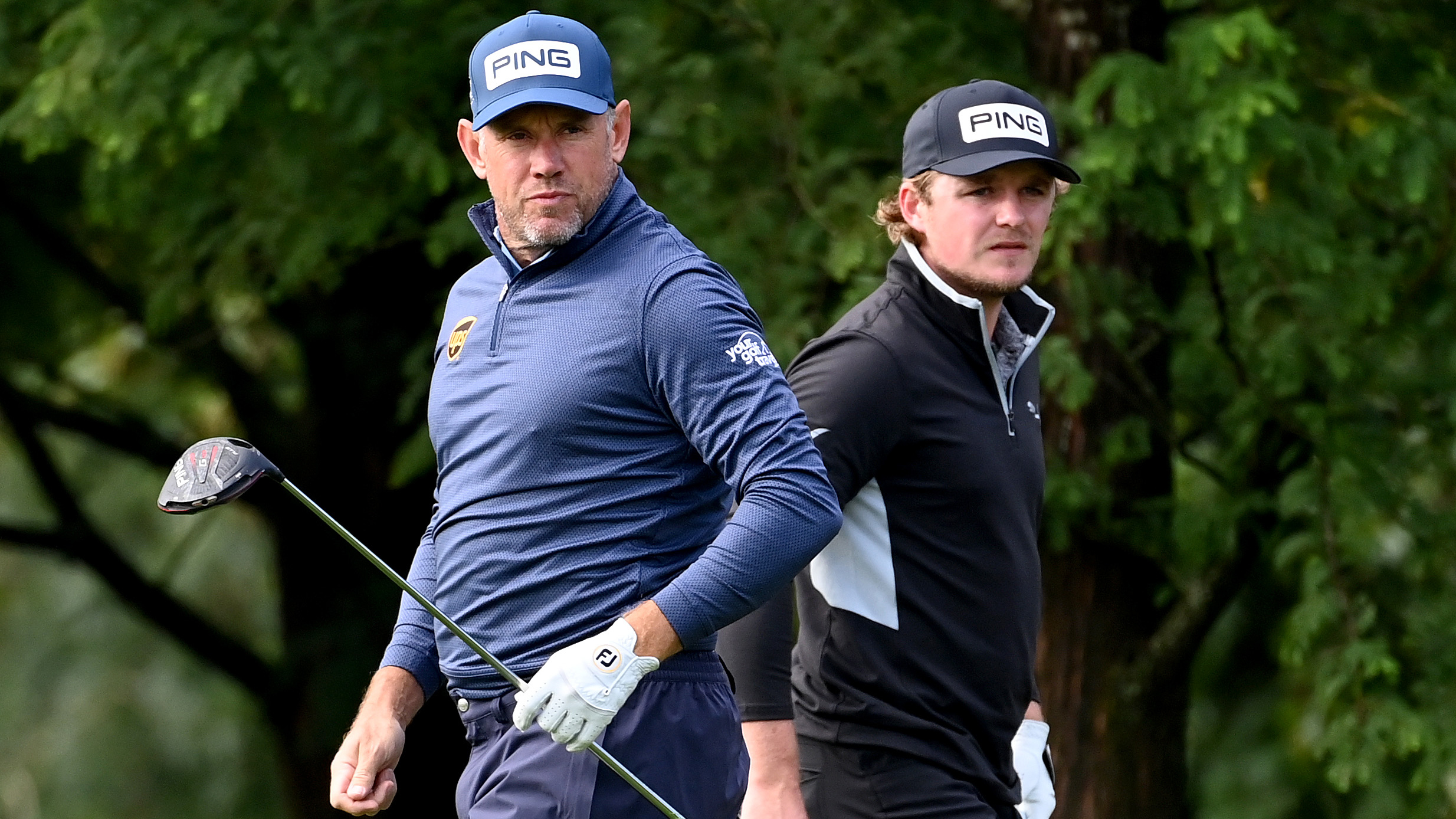Why European Player In-Fighting Is A Sad Product of LIV Golf
The unity and camaraderie of European golf has been diminished as players argue over the future of the men’s professional game.


Subscribe to the Golf Monthly newsletter to stay up to date with all the latest tour news, equipment news, reviews, head-to-heads and buyer’s guides from our team of experienced experts.
You are now subscribed
Your newsletter sign-up was successful
Want to add more newsletters?

Delivered daily
Daily Newsletter
Sign up for all the latest tour news, gear reviews, head-to-heads and buyer’s guides plus features, tips from our top 50 coaches and rules advice from our expert team.

Once a week
Kick Point
Sign up to our free Kick Point newsletter, filled with the latest gear reviews and expert advice as well as the best deals we spot each week.

Once a week
Women's Golf Edit
Sign up to our free newsletter, filled with news, features, tips and best buys surrounding the world of women’s golf. If you’re a female golfer, you won’t want to miss out!
One of the great things about the old European Tour was the sense of camaraderie it instilled in its members. It never had super, mega-bucks to offer like the PGA Tour, but it had long been a true worldwide circuit in which participants and their caddies travelled to, and stayed together, in far flung golfing enclaves, sharing experiences and creating great bonds.
It was one of the key reasons that Europe emerged as a golfing powerhouse in the late 20th century. It took relatively little time from the proper inception of the European Tour in 1972 for Seve to blaze a trail and begin winning Majors from 1979. A run of European successes followed and, in 1985, the strength of the European circuit was demonstrated when Europe won the Ryder Cup outright for the first time since 1957.
One of the fundamental things that powered this European resurgence was unity between the players. They believed in each other and this re-enforced the belief they had in themselves. The Europeans were a team, whether playing in the Ryder Cup or not… They supported one another.
That’s why it’s so sad to see the discord that’s been created by the divisions in men’s pro golf that have arisen this year. The latest was a “discussion” on Twitter this weekend between former European tour stalwart Lee Westwood and his fellow Englishman Eddie Pepperell.
What the disagreement was about isn’t too important to this piece, but it arose from responses to a blog by Alistair Tait in which the journalist quite rightly asked a question about the falling status of certain European Tour/DP World Tour events – citing the event at Valderrama – effectively: will sponsors and venues be inclined to jump ship? Westwood and Pepperell fundamentally agreed with the point but then went to fall out on the details… see below...
"If One @DPWorldTour Domino Falls." https://t.co/scCxxjOGew via https://t.co/LccUyvAqs9 #GolfOctober 14, 2022
What struck me was how sad it is that fellow pros, particularly those who would have previously been European Tour allies, are having public fallouts.
Older European players have always acted as mentors to younger players – Not only providing competitive inspiration, but also demonstrating the level of professionalism that’s expected of a top-level sports person.
Subscribe to the Golf Monthly newsletter to stay up to date with all the latest tour news, equipment news, reviews, head-to-heads and buyer’s guides from our team of experienced experts.
On the flipside, younger players have benefited from a deferential approach to those approaching veteran status. Those who have done it before, enjoyed success and made mistakes are the best people to learn from.
Rory McIlroy said at Wentworth that LIV had strained relationships with former Ryder Cup teammates. This is a man who broke down in tears after the last Ryder Cup at Whistling Straits, saying how much he wanted to win for those teammates. How sad that some of those personal relationships have broken down.
And the breaking down of those personal relationships will have professional repercussions – Some of the European LIV players may not have made the next Ryder Cup team anyway, but the likes of Sergio Garcia, Lee Westwood and Ian Poulter would surely have had a key role to play.
Then, will Sergio be at Augusta next April to put a quiet word in the ear of fellow Spaniards who could be in contention? How many young English players forging out on the DP World Tour will miss out on learning from the professional wisdom of Westwood and Poulter? How much emotional energy will be wasted on disputes?... Energies that would otherwise have been channelled towards improving and winning.
European golf has thrived over the last 40 years on camaraderie and unity. It would be sad to see those qualities diminish any further. A clear path to the future must and will be settled upon, but the process won’t be expedited by the players taking swipes at one another.

Fergus is Golf Monthly's resident expert on the history of the game and has written extensively on that subject. He has also worked with Golf Monthly to produce a podcast series. Called 18 Majors: The Golf History Show it offers new and in-depth perspectives on some of the most important moments in golf's long history. You can find all the details about it here.
He is a golf obsessive and 1-handicapper. Growing up in the North East of Scotland, golf runs through his veins and his passion for the sport was bolstered during his time at St Andrews university studying history. He went on to earn a post graduate diploma from the London School of Journalism. Fergus has worked for Golf Monthly since 2004 and has written two books on the game; "Great Golf Debates" together with Jezz Ellwood of Golf Monthly and the history section of "The Ultimate Golf Book" together with Neil Tappin , also of Golf Monthly.
Fergus once shanked a ball from just over Granny Clark's Wynd on the 18th of the Old Course that struck the St Andrews Golf Club and rebounded into the Valley of Sin, from where he saved par. Who says there's no golfing god?